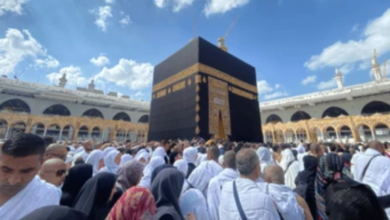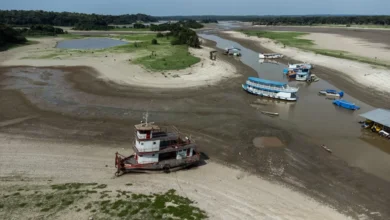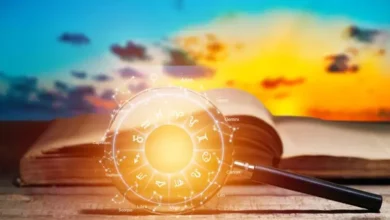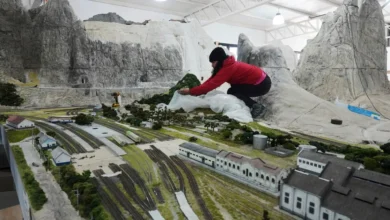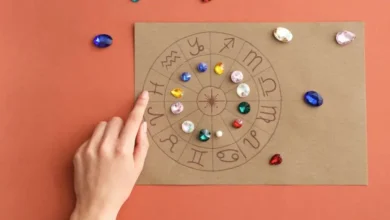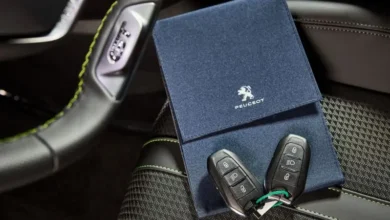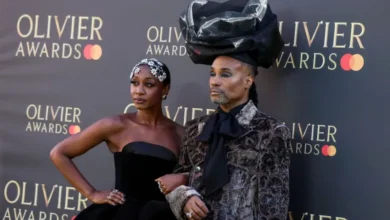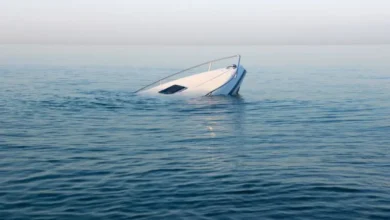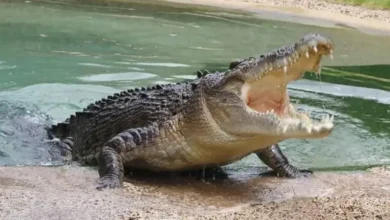Winner of $100,000 Ithra Art Prize unveils artwork at AlUla Arts Festival

Saudi artist Obaid al-Safi, the winner of the $100,000 Ithra Arts Prize, unveiled his winning piece at the AlUla Arts Festival.
‘Palms in Eternal Embrace’ is a large-scale, site-specific installation that comprises of more than 30 palm trunks intricately woven together using an array of brightly colored ropes made from locally-sourced organic or recycled materials. Its design is drawn from the traditional artistry of rope and Leifa making in Saudi Arabia.
The work is positioned amid the 2.3 million date palms of AlUla, which were a direct inspiration for the piece, according to al-Safi.
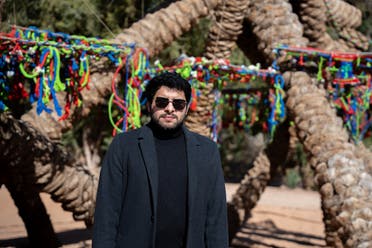
“The inspiration behind my piece are the palm trees that are ubiquitous throughout the Arabian Peninsula, and have been a symbol of Arab identity for centuries, which are now endangered in the region and throughout the world,” the artist told Al Arabiya English.
The piece also draws inspiration from the historical town of Qaryat al-Faw, where al-Safi was born, and the enigmatic 5,000-year-old Rajajil Columns in one of the oldest and most significant archaeological sites in the country – the al-Jawf region in northern Saudi Arabia.
These precisely aligned sandstone pillars were used to observe the stars and seasons, which suggests ancient cultures had advanced astronomical knowledge.
“The work also draws inspiration from the mythologies surrounding the Rajajil Columns in northern Saudi Arabia. The Rajajil Columns point in mysterious directions, both towards the ground and the sky. This reminded me of the AI neural network, which processes data inspired by the human brain, creating a connection between AI and humans, just like the Rajil Columns connect land and sky,” he said.
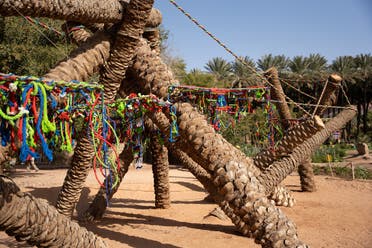
There seems to be a concealed message within the Rajajil Columns as if the universe itself is communicating with us,” the artist added.
Alsafi’s reference to Rajajil draws attention to how these ancient columns, which are shrouded in mystery, have become deeply embedded in Saudi collective memory through the rich tradition of mythical storytelling – a vital part of the country’s cultural heritage.
To make his piece, the artist said he collaborated with local artisans to craft unique designs that blend modern and traditional art, infusing a contemporary touch while honoring the region’s rich heritage of craftsmanship.
The intertwining ropes linking the trunks symbolize the potential of advanced technologies that could be utilized to preserve endangered flora and fauna, al-Safi explained.
The winning artwork of the sixth edition of the Ithra Art Prize is the first in collaboration with Arts AlUla, and comes as part of a wider partnership between both organizations to combine their respective efforts to support creativity in Saudi and the wider region.
Al-Safi’s piece was selected by a committee of industry experts comprised of Farah Abushullaih, Head of Museum at Ithra, Nora al-Dabal, Executive Director of Arts AlUla, Mohamed Ibrahim, Emirati Artist, Sophie Makariou, Scientific Director for Culture and Heritage, AFALULA and Aric Chen, General and Artistic Director, Het Nieuwe Instituut.
The theme ‘Art in the Landscape’ called for submissions of public artwork proposals that are site-specific to AlUla, a globally significant heritage and culture destination and the nexus of the famed Incense Road Trading route from antiquity.
The participating artists were asked to present interpretations of AlUla’s unique landscapes and natural heritage.
‘Palms in Eternal Embrace’ will exhibit for six weeks amid the 2.3 million date palms of the AlUla Oasis, encouraging viewers to reflect on ways to safeguard the natural environment and bringing attention to endangered palm trees, a compelling symbol of the landscapes and heritage of the Arabian Peninsula. After the Festival, the work will join Ithra’s permanent collection.
“I am so happy to have my work recognized and be able to share it with more people. I invite audiences to touch, climb and sit on the sculpture, to pause and reflect on the natural environment,” al-Safi told Al Arabiya English.
The Ithra Art Prize, launched in 2017, is open to submissions from artists either from or based in one of the 22 Arab countries.
It awards the winning artist $100,000 in addition to up to $400,000 in funding to bring their project to fruition, making it the largest art grant in the region.
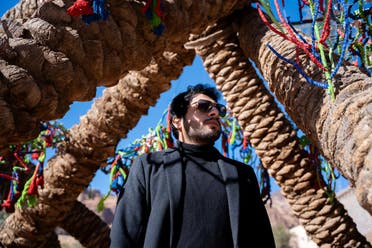
“Having the support of the government and the community is so important as it enables me to have the resources and exposure needed to exhibit my work and connect with new audiences, which is vital to any artist,” the Saudi artist said.
In recent years, Saudi Arabia has heavily invested in the creative economy – including in arts, music, and sports – as part of its mission to diversify its economy, improve the quality of life for its people, and provide and create job opportunities.With youth at the centerfold of its plan, the arts scene in the Kingdom has seen exponential growth and investment like never before, according to al-Safi.
“The Kingdom’s investment in the culture sector has led to a creative boom in Saudi Arabia and the wider region, creating opportunities for local artists to showcase their work and collaborate with each other. Initiatives such as the partnership between Ithra and Arts AlUla support grassroots investment in the arts community and the wider contemporary arts scene,” he said.
The AlUla Arts Festival, inaugurated in 2022, has become a must-see annual event on the global arts scene.
The two-week long festival offers visitors curated arts experiences, bringing together exhibitions and experiences carefully put together by a diverse group of artistic talents under the direction of Arts AlUla and in celebration of AlUla’s legacy as a cultural crossroads.
The AlUla Arts Festival features a program of art, culture, history, and landscapes, as well as exclusive performances and immersive experiences spread across AlUla’s ancient sites and modern-day arts precincts and venues.
Featuring an exciting mix of talent including local, regional, and international artists, performers, curators, collectors and more, the festival revives AlUla’s creative legacy.
